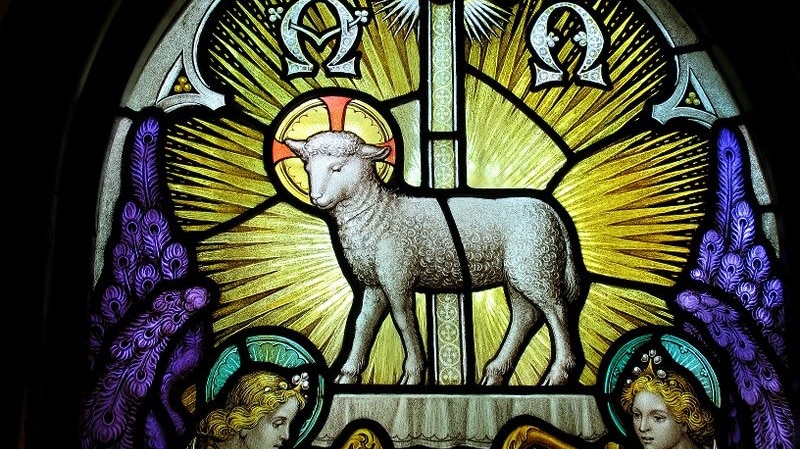Weddings and clothes – they are important parts of every culture. Can you think of any culture that doesn’t have weddings? That is not concerned with clothes? I can’t.
For instance Jesus spoke of how the flowers are clothed, clothing the naked, rich people clothed in splendid fabrics, and new and old garments. And clothes are important for us, too. What would you imagine to be the gross revenues per year coming into our fashion industry? We needn’t spend time here talking about our American concern with clothes and fashions. It’s quite obvious to us all.
Weddings, too, remain important to us, even though more and more people are not even bothering to marry. For us as Christians, weddings are still very important. They’re defining moments in our lives.
In the Gospel of Matthew (22:11-14), Jesus takes important and universal features in Jewish culture, and indeed in all cultures, and uses them to construct a parable, a teaching story that involved clothes at a wedding feast.
Jesus performed His first miracle at a wedding feast in Cana of Galilee. He used marriage feasts as settings for His teachings about how we should live our lives here in this world as well as life in heaven. His teaching about divorce is grounded on God’s everlasting commitment to us, God’s marriage to us. He concluded His ministry among us by centering His Last Supper in the context of God’s unbreakable covenant commitment, God’s marriage to us… with no divorce, no turning away from us.
Did you ever consider the fact that the public life of Jesus began at a wedding feast, the one in Cana, and ended with what we know of as the Wedding Feast of the Lamb?
As I said, this parable is the story of a wedding and the clothes worn at it. The central feature is the wedding garment. So what’s the point? Well, to begin with, have you ever showed up at a wedding wearing just a T-shirt and cutoffs? No, of course not. And on other special and important occasions you wear special clothes, graduations for instance, job interviews, court trials, and other special events require that you wear the proper attire. When I was a little boy we wouldn’t think of attending Sunday Mass wearing anything but our “Sunday finest”.
In his epistles St. Paul repeatedly speaks about “putting on Christ”, clothing yourself in him. It all has to do with clothing your heart and soul with Christ’s attitudes toward others, with His ways of treating others… clothing yourself with His respect for them, because they are God’s children too. This doesn’t have anything whatsoever with putting on a false front, wearing a mask, or otherwise being insincere in the way we approach others. No. It means wrapping yourself up in Christ’s Holy Spirit. It means changing the appearance of your heart and soul from the inside out rather than from the outside in.
Just as an aside, sometimes people express their criticisms to me as to Catholics coming to Mass dressed in any old clothes. Why, they ask, don’t Catholics dress up for Sunday worship? My response is that hopefully they’re more interested in how their hearts and souls appear than they are in what they’re wearing outside on their bodies. Nevertheless dressing well makes a statement to yourself and to others that you are attending something that is important.
In the rite of baptism we hear the priest or deacon say: “Receive this white garment, the outward sign of your Christian dignity…” Note that this outward sign is to be a window through which others and peer into your inner self. Through it they can see what’s in your heart and what’s in your soul, see what’s really in you. Because of Baptism you belong to Christ in God’s Kingdom of Light and not in the Evil One’s kingdom of darkness.
Clothing ourselves in Christ’s attitudes, in His ways to treating people, as well as making His relationships with His Father and with people is central to our spiritual lives. It is the essence of living in the way and the truth and the life of Christ Jesus.
Permit me to shift into the language of psychology and to suggest that what we are talking about here is behavior modification. Behavior modification is at the heart of psychotherapy, just as it is at the heart of Christian spirituality. Behavior modification is based on the idea that if we change our outward patterns of behavior our internal attitudes and motives will change to conform to those ways of behaving. This is nothing new to us. It’s something the Church began nineteen hundred years before Sigmund Freud, William James, Karl Menninger and all of the famed psychiatrists who are so well known to us.
Lent is all about changing how we act in order to change our inner souls. Penitential practices are likewise all about that. Regular reception of the Sacrament of Forgiveness is all about that. So also is going to Mass every weekend. Practicing our craft shapes and molds us. Thus we speak of the practice of medicine, the practice of law, and so forth. Hopefully with all of that practicing your doctor or your lawyer will one day get it right! And hopefully we too, with our religious practices, our souls, our spiritual lives, will change and improve. Hopefully our very selves will change for the better.
At the time Jesus taught this parable it was the custom for hosts at wedding feasts to provide wedding garments at the door for invited guests who were too poor to dress up. Everyone who came into the banquet hall could have a fine wedding garment. There was no excuse for anyone to not be wearing one. Thus you see the insult being hurled at the host in today’s parable. The man not wearing a wedding garment simply couldn’t be bothered, or else was deliberately insulting the host as well as the newly married couple.
God offers and provides… we respond. God’s invitation to join him and share His life is extended to everyone. He meets us at life’s door with Baptism and offers us His wedding garment. What happens after that depends on us, particularly upon our own personal putting on Christ.
We are here today celebrating the nuptials between God and us. He is here to marry you, offering you His very self. “This is my Body– take it,” he says. “This is my Blood, my life, mingle it with yours. I am marrying you.”
He has given us everything he could possibly give us. What will be our response?





